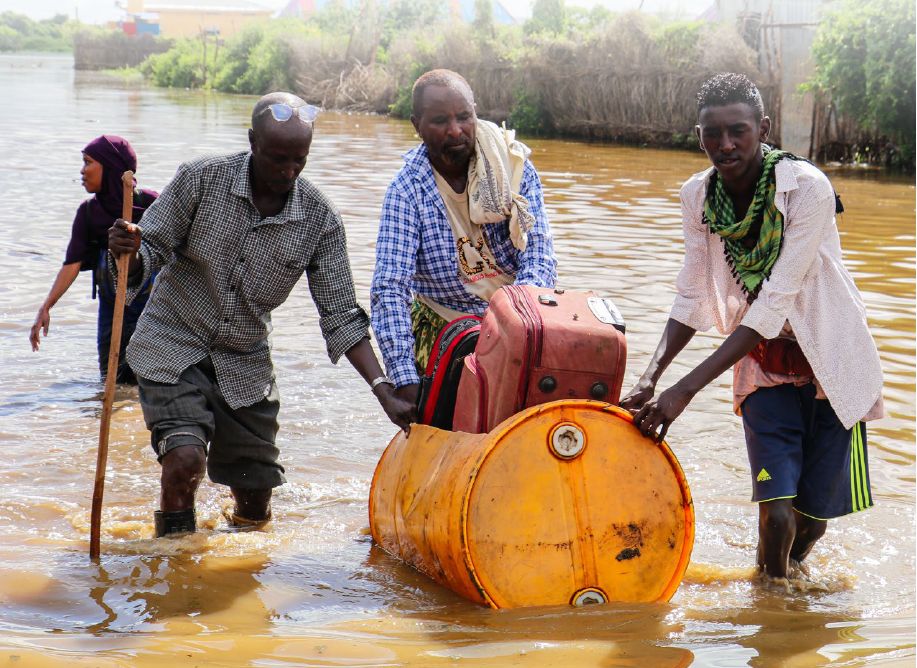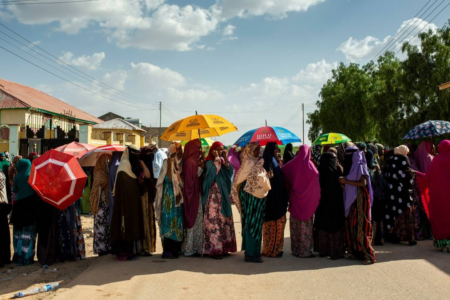In May 2025, the World Food Programme (WFP) released a comprehensive report detailing key findings and recommendations from Somalia’s Anticipatory Action (AA) Learning and Validation Workshop.
The initiative, designed to improve early disaster response, particularly for riverine floods, showcased how proactive strategies can save lives and build community resilience.
WFP Somalia 2025 Forward-Looking Strategy
The AA approach was implemented in districts vulnerable to flooding during the 2023 Deyr and 2024 Gu seasons.
It focused on community engagement, predictive data, inter-agency coordination, and integrating AA into long-term development frameworks like social protection.
Key achievements include:

- 298,718 people received cash assistance.
- 2.34 million people were reached with early warning messages.
- 30 evacuation boats deployed ahead of floods.
Community Engagement and Forecast-Based Planning
WFP Somalia 2025 AA report emphasizes the importance of inclusive planning.
Communities, including marginalized groups, participated in risk assessments and response strategies, increasing trust and timely action.

Traditional knowledge was combined with scientific models.
Such as the Geospatial Stream Flow Model (GeoSFM) and SWALIM data to improve flood prediction accuracy.
Read also: Explore the True Cost of Climate Crisis in Poor Nations 2025
Challenges to Overcome
Despite notable progress, Somalia’s anticipatory systems face hurdles including:
- Limited data for model calibration.
- Conflicting roles among humanitarian agencies.
- Over-reliance on donor funding.
Integration into Broader Programming
Efforts are ongoing to align AA with national development goals.
Ideas include:
- Expanding social protection schemes.
- Training river watch volunteers.
- Strengthening local capacity to identify early warning signs.
WFP Somalia 2025 – Key Recommendations:
To improve Somalia’s disaster response, the report suggests:
- Developing a national anticipatory action policy.
- Enhancing cross-border flood coordination with Ethiopia.
- Recalibrating forecasting tools for accuracy.
- Institutionalizing AA into Somalia’s disaster risk management systems.
As climate risks grow, Somalia’s experience shows that proactive, community-centered strategies like AA are essential.
Continued investment in forecasting, coordination, and local empowerment will determine the success of Somalia’s disaster resilience roadmap.








